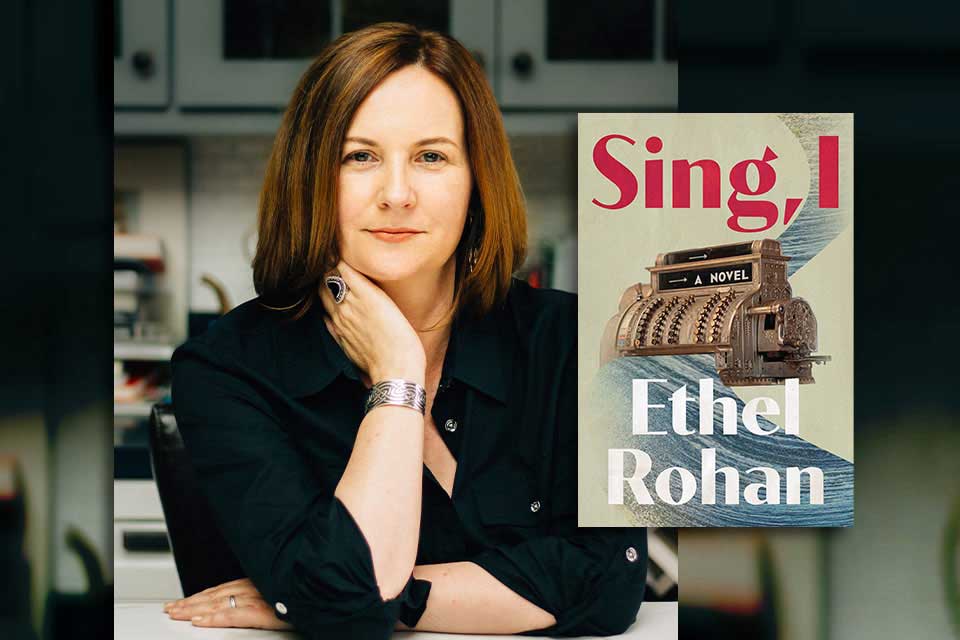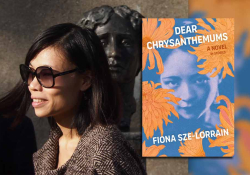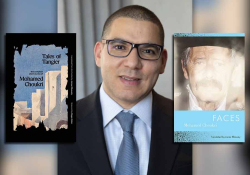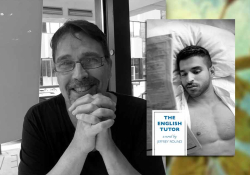5 Questions for Ethel Rohan
 Ethel Rohan’s second novel, Sing, I, was published by TriQuarterly Books on April 15. The novel’s heroine, Ester Prynn, works in a convenience store in a coastal California town. A masked gunman robs the store, upending Ester’s life, leading to both newfound verve and difficult choices.
Ethel Rohan’s second novel, Sing, I, was published by TriQuarterly Books on April 15. The novel’s heroine, Ester Prynn, works in a convenience store in a coastal California town. A masked gunman robs the store, upending Ester’s life, leading to both newfound verve and difficult choices.
Q: Ester Prynn/Hester Prynne: is your protagonist a contemporary condemned woman?
A: While patriarchy dominates, all women are condemned to varying degrees—levels of devaluing and policing that are dependent on our government, race, class, ethnicity, religion, sexuality, domesticity, and perceived chastity and morality. Ester compounds this misogyny with internalized condemnation that feeds her blistering sense of guilt and shame on a number of levels and suppresses her true wants and needs. Her struggle over the course of the novel is to rise above the limits that she and prescriptive, heteronormative power systems have forced on her.
Q: You seem to be equally at home writing novels and short fiction. As a reader, which are you more drawn to and why?
A: As a reader, I’m equally devoted to the novel and the short story. While the novel can give us more plot, characters, time, place, ideas, insights—and readers can stay within its world longer—both forms require the writer to employ a similar skill set and deliver the best story possible. Given its constrictions, it’s remarkable that the short story can essentially yield all that the novel does. That’s arguably a key difference between the two: the short story is more mysterious and mystical.
Q: What do your favorite stories do?
A: Beyond the absolute requirement of being interesting, my favorite stories center on fraught relationships and crackle with tension. I love language that’s skilled, lyrical, and efficient, and am a disciple of nuanced storytelling that’s pulsing with emotion, insight, great dialogue, and visceral sensory details. Favorite authors who deliver in these ways include Clare Beams, Lindsay Hunter, Yiyun Li, Shanthi Sekaran, Elizabeth Strout, and Bryan Washington. A newly released title that has become a fresh favorite is the interconnected short-story collection Island Rule, by Katie M. Flynn.
Q: In April 2020 we published an essay you wrote, “Oh, the Places You’ll Not Go!” in our pandemic dispatches series. You wrote about life during lockdown—the convoy of cars that drove by for your daughter’s birthday, playing lots of Scrabble, connecting with friends online for tea. Has your life completely returned to normal, or are there ways in which this period went forward with you?
I think the pandemic broke normal and has gone forward with all of us, whether we realize it or not.
A: I think the pandemic broke normal and has gone forward with all of us, whether we realize it or not. I doubt we’ll ever fully know the true toll of having so much disrupted and stopped—including life itself for millions of people. I wish I still felt as positive and optimistic as I did in that essay. The best of that surreal time was the ironic sense of interconnectedness worldwide and what seemed like the majority’s impulse to protect and care for one another. I’m worried by how far the pendulum has swung in the other direction. We’re losing empathy for each other and becoming frighteningly desensitized and hardened. If that persists, inhumanity is the pandemic that’s going to kill us all.
Q: You host Bookshop West Portal’s Irish Authors Interview series—with past guests Colm Tóibín, Kevin Barry, Donal Ryan, and Louise Kennedy—and you curate the bookshop’s national Irish Book Box subscription service. We’re in a moment when people outside of Ireland hear “Irish lit” and likely think Sally Rooney. If you could choose just one book by an Irish writer that everyone would read, which would you choose?
A: Paul Lynch’s Prophet Song. This chilling novel is set in Dublin and portrays a family and a country on the brink of catastrophe. The novel’s immediate sense of urgency and menace escalates quickly and devastatingly. Lynch depicts an Ireland turning totalitarian after the rightwing National Alliance party seizes control. People are stripped of their rights and freedoms, and chaos and civil war ensue. Meanwhile, protagonist Eilish Stack’s husband is disappeared by the National Alliance, and under barbaric conditions, she must try to keep herself, her four children, and her senile father fed and alive.
What’s notable from the first page is the skill and power of Lynch’s prose. There’s such beauty and precision in his language. I found myself rereading sentences and sections—not only to savor, dwell, and grieve—but also because the language’s rhythm is sometimes jarring and off-kilter, further underscoring the mayhem within the novel.
It's the choice, though, to set this story of a failed democracy turned totalitarian state in Ireland that is most masterful and disruptive. Portraying fascism, martial law, and civil war in a pacifist republic where most would deem such extremes impossible allows us to see anew this rising global threat and the all-too-real and growing humanitarian crises happening worldwide. In this way, Prophet Song best challenges our ambivalence and complacency.
Ultimately, Prophet Song makes us believe that such horrors and devastation could in fact happen in Ireland. And if terror and tyranny could prevail again there, it could lay siege to anyone, anytime, anywhere. A petrifying prospect that demands our attention and has the power to summon our resistance and stoke our humanity. Prophet Song isn’t a comfortable read, but it is a gripping, brilliant, and necessary one.
Ethel Rohan is the author of In the Event of Contact (2021), winner of the Dzanc Books Short Story Collection Prize, the Gold IPPY Award for Best European Fiction, and the Eric Hoffer Short Story Collection Award. Her debut novel The Weight of Him (2017) was an Amazon, Bustle, KOBO, and San Francisco Chronicle Best Book. Sing, I (2024) is her second novel.















